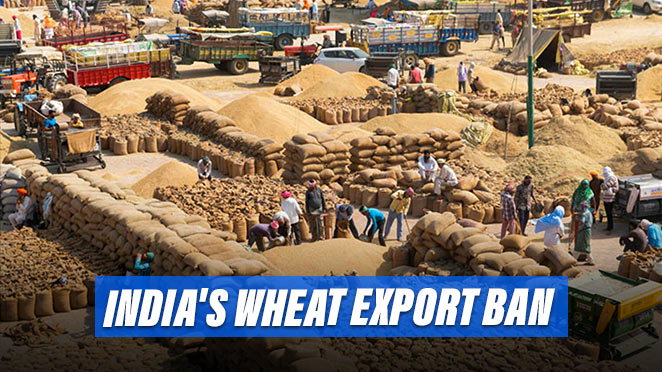
The US has said that they hope India will reconsider its decision to ban wheat exports, days after China defending the decision. The US also added that they are encouraging nations not to restrict exports.
“We have seen the report of India’s decision. We’re encouraging countries not to restrict exports because we think any restrictions on exports will exacerbate the food shortages. But you’ve – again, India will be one of the countries participating in our meeting at the Security Council, and we hope that they can, as they hear the concerns being raised by other countries, that they would reconsider that position,” said the US Ambassador Linda Thomas-Greenfield, during a New York Foreign Press Center briefing on global food security, when asked to comment on India’s decision to limit exports because of possible shortage due to excessive heat.
Why has India banned the wheat export?
As the wheat prices have been rising internationally on account of supply shortages due to Russia-Ukraine war, the central government had announced on May 13 to limit wheat exports in order to contain rising wheat prices and manage food security in India.
However, later on the govt gave some relaxations. “It has been decided that wherever wheat consignments have been handed over to Customs for examination and have been registered into their systems on or prior to May 13, such consignments would be allowed to be exported,” said the commerce ministry said in a statement.
According to the Commerce Ministry statement, the government also allowed a wheat shipment headed for Egypt, which was already under loading at the Kandla port.
International effect of India’s wheat export ban:
Global wheat prices leapt a record 6% on Monday following India’s decision to restrict overseas sales of the staple, exacerbating a global food crisis, trading data showed. The world was banking on India to alleviate wheat supplies crimped by the Ukraine war.
Amidst this, the members of the G-7 countries are expected to appeal to India to reverse the ban on wheat exports during the upcoming G-7 summit (June 26-28) in Germany which is likely to be attended by Prime Minister Narendra Modi.
The information about the G-7’s stance towards the ban of wheat exports came as India sent Minister of State for External Affairs V Muralidharan to participate in a high-level ministerial meeting in New York on “Global Food Security – Call to Action”.
China’s stand on India’s wheat export ban:
China on Sunday came to India’s defence after G7’s criticism over the decision to regulate the export of wheat, saying that blaming developing countries like India won’t solve the global food crisis.




